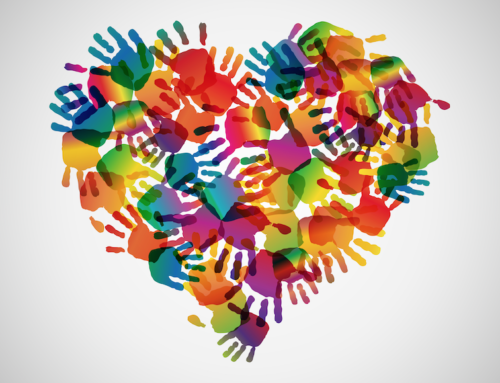Religion, The Church, and Sexual Abuse
February 21, 2016
Categories: Abuse,Religion/Spirituality,Sex
I just finished reading another article about a sexual abuse scandal in the church. It was difficult to read. There were stories about church leaders who (a) covered up sexual abuse, (b) pressured victims and their families to forgive the abusers and not go to the authorities, and (c) shamed the victims when they did eventually speak out.
As I read the story, I felt angry. This was an injustice and it should not have happened. Some of the things that were discussed in the article, I could hardly believe. It seemed crazy that the church leaders who were involved in the scandal thought their course of action was correct.
I also felt a great deal of sadness as I read the article. I was sad about what happened to the victims, and what they had to go through. I also felt sad about how the abuse affected the victim’s relationship with God. How are you supposed to believe God loves you, or that God is safe, when your experience of God’s ‘representative’ is one of abuse and shame?
As I read the story, I started to think about the relationships between religion, the church, and sexual abuse. We hear about a lot of sexual abuse scandals in the church. Could it be that there is something about the structures of some religious traditions and churches that make sexual abuse (and its cover up) more likely to occur? Here are 4 characteristics that intersect to make it difficult for some churches to prevent and stop sexual abuse.
- Many religious traditions have very strict views on sexuality. Many churches promote moral teachings on sexuality that are strict, idealistic, and difficult (if not impossible) to follow. For example, many religious perspectives permit sex only within a heterosexual marriage. Individuals who identify as lesbian or gay, or who are unmarried, are expected to be abstinent. Some religious traditions also frown on other types of sexual expression such as masturbation. Some churches don’t allow their religious leaders to marry and have sex. I wonder if the overly strict views on sexuality actually make other types of sexual acts more likely to occur. There isn’t an acceptable avenue for one’s sexual energy, so it comes out sideways. It’s like trying to hold a beach ball under the water.
- Many religious individuals have a strong need to be morally perfect (and hide when they are not). Many churches teach that you are saved by grace (not by your own works), but once you are saved, it is expected that God will begin a process of sanctification in you, resulting in less sinful behavior and increasingly moral behavior over time. There is a lot of pressure to appear like you are growing and getting better in your walk with God, which should result in higher standards of moral behavior. Sexual acting out is frowned upon and judged harshly. If individuals are struggling with the sexual part of their lives, they may be more likely to hide it in order to keep up the facade of moral perfection. Sexual abuse is so shaming that it may be difficult for perpetrators to come clean about their behavior, or for victims to report the truth about what happened.
- Many religious traditions have strong views of patriarchy that don’t allow the voices of women and children to be heard. Many religious traditions teach that women and children should submit to male authority. In many church scandals of sexual abuse, the perpetrators (as well as the people making decisions about what to do about the allegations) are male. The perspectives of women and children (including the victims) are not given as much weight as the perspectives of men. We need to do a better job of prioritizing the voices of women and children, and giving them a seat at the decision-making table.
- Many religious traditions have a strong desire to ‘police themselves’ and avoid the outside influence of mental health professionals, and law enforcement. Many churches don’t like the outside world telling them how to run their business. The separation of church and state is viewed to be very important. There are verses in the Bible that talk about the importance of resolving conflict between church members internally, and not bringing each other to court. But when these verses are applied to issues of sexual abuse, it’s a terrible tragedy and likely creates a second trauma for the victims. Churches need to work together with mental health professionals and law enforcement to ensure that proper precautions are in place to prevent and stop sexual abuse. The days of churches operating independently on this issue needs to be over.
Discussion: What do you think about the four characteristics of religion and church that make it difficult to prevent and stop sexual abuse? What could we do to move forward in this area?
Related Thoughts
No Comments
Leave A Comment

Subscribe To My Newsletter
Join my mailing list to receive the latest blog posts.
Receive my e-book “The Mental Health Toolkit” for free when you subscribe.






I resonate with the “policing themselves” point. It’s really sad that the church forgoes the legal system to “handle” sexual abuse cases. They need to remember this important truth: sexual abuse is against the law.